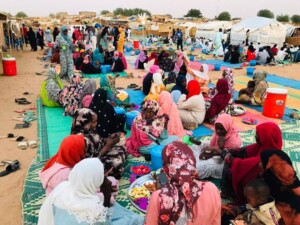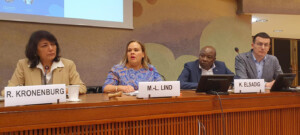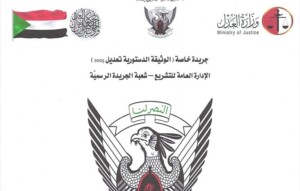RSF seize Sudan telecoms, data safety in question

RSF troops jump from a pick-up truck (File photo: RSF)
The Rapid Support Forces (RSF) announced yesterday it took control of the database centre of Sudatel (Sudan Telecommunications Group), raising many questions regarding the threat to sensitive information stored in the facility.
The RSF seized control of the Sudatel Data Centre in southwestern Khartoum, as announced in a video on their X page (formerly Twitter) yesterday. The video emphasised the RSF’s commitment to securing the “crucial” database against potential “war-related threats”.
People claiming to work at the centre, featured in the RSF video, reassured the public that the paramilitary group is “diligent in protecting the site and providing logistical support”. Despite these assurances, some on X expressed fears about the centre becoming a military target.
In the background of the video, a second RSF speaker detailed the centre’s significant information storage, including data from entities like the Ministry of the Interior, the Civil Registry, and several banks. “Despite attempted bombings, the RSF successfully defended the building”, the speaker asserted.
Since the RSF announced its takeover of the Sudatel Data Centre, many in Sudan have questioned the significance of this move on social media platforms and WhatsApp groups. Some voiced concerns that the RSF’s control might grant access to sensitive information related to governmental and corporate institutions.
Communication and IT expert Mohamed Hasan, however, downplayed these fears in a call with Radio Dabanga. Hasan explained that control over the Sudatel Data Centre “doesn’t necessarily mean the ability to access its information”, emphasising robust protection systems put in place, including restricted access “granted only to authorised employees”. He nevertheless warned that “it is not easy to erase stored information unless it is physically destroyed,” referring to the possibility of sabotaging the data-storing devices.
‘Collective memory’
The Sudatel Data Centre infrastructure plays a crucial role in digitalising governmental and public and private sector institutions. “It benefits various Sudanese facilities, including companies, banks, governmental and educational institutions, and civil society organisations; about 75 per cent of government and private sector institutions are involved in the Sudatel database, if not all of them.”
Hasan estimated the cost of establishing such data centres at “millions of dollars”, considering them “important assets of the wealth of Sudan”.
Mohamed Hasan urged the warring parties to ensure the safety of data centre workers “as they are not a part of this conflict”. Referring to the Sudatel Data Centre as the “collective memory of Sudan”, he warned against it becoming a military target.
The IT expert pointed out that the Sudatel Data Centre is one of the largest in Africa, noting that it previously won a regional excellence award.











 and then
and then